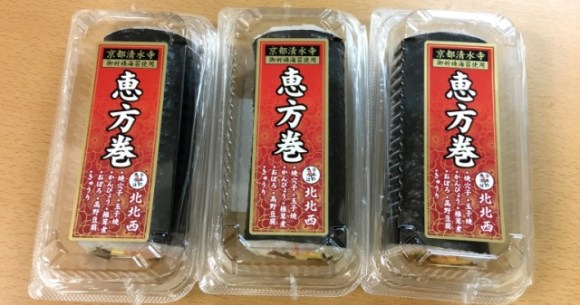[ad_1]
In pre-COVID-19 times, the Red Cross would have flown in foreign specialists to help a remote island nation like Tonga recover from a natural disaster.
But after a tsunami and volcanic eruption contaminated Tonga’s water supply last month, the government banned aid workers for fear of COVID-19 coming to a place that had so far escaped community transmission of the virus. (It came anyway.) And because the Red Cross could not easily find a local sanitation specialist, its experts in Fiji had to offer technical support over a patchy telephone line.
“It’s like trying to work under 20 meters of water,” said Katie Greenwood, one of those experts. “You can do it, but it’ll take longer, it’ll be less effective and you’ll want to not do it that way if you can avoid it.”
In the COVID-19 era, foreign governments and aid groups have been delivering what they say is a “contactless” response to natural disasters in the Pacific. Supplies are sent from abroad, local groups take charge, and foreign experts provide support over the phone or through Zoom meetings.
All of that has accelerated a welcome shift away from an expatriate-led, “fly-in fly-out” model of humanitarian aid, according to relief workers involved in responses to recent natural disasters in Tonga and elsewhere in the Pacific islands.
“We should not be parachuting people in as a matter of course anymore,” said Greenwood, who oversees the Pacific for the Red Cross. “That’s an old model — it’s dead. We need to rely on locally led responses from communities and local organizations.”
But the transition has been rocky. Inefficiencies in aid delivery that were common before the pandemic still exist. Some local nonprofits have been overwhelmed with new projects. And the speed or quality of locally led aid responses has often been slower than expatriate-led “surges” after pre-pandemic natural disasters.
Out with the old
One of the first disasters to strike the Pacific islands during the pandemic was Cyclone Harold, a Category 5 storm that ripped through Vanuatu, the Solomon Islands and other countries in April 2020. Several aid professionals said that the overall response to Harold was far more locally led — and efficient — than an earlier response to Cyclone Pam, a 2015 storm that caused about $400 million in damages in Vanuatu alone.
After Pam, international agencies sent thousands of relief workers and technical advisers into Vanuatu. That did not go over well.
“There was a feeling that the international community had surged in, taken over the response and overridden the existing local system and local approaches to identifying and addressing needs after disasters,” said Luke Ebbs, the Vanuatu director for Save the Children.
After Harold, many of those same logistics were coordinated by the Vanuatu Skills Partnership, a local group that in normal times conducts technical and vocational training in remote areas in four of the island’s six provinces.
Aid supplies were still sent into Vanuatu from abroad, as they had been before the pandemic.
“But we didn’t have to rely on procurement specialists or logistical advisers from Save the Children or the Red Cross or Oxfam because we realized that, actually, that capability was here,” said Jennifer Kalpokas Doan, the Vanuatu-based director of strategy and programs at Balance of Power, a regional nonprofit that specializes in women’s empowerment.

Vanuatu’s Education Ministry also told Save the Children that instead of sending tents to be used as replacement classrooms in areas where school buildings had been damaged — a typical pre-COVID-19 response — the group should help pay for those buildings to be repaired.
As a result, Save the Children used the money that it would have spent on about 50 tents to finance repairs on more than 100 schools, Ebbs said. He said it was a prime example of “good, locally led outcomes that resulted from the fact that we had to change the way we worked and rely more on local capacity than an international surge.”
Pitfalls of ‘localization’
Moving to a more locally led model in the middle of the pandemic has been full of hiccups.
Even as Save the Children worked with Vanuatu’s Education Ministry to repair schools after Harold, for example, it shipped temporary tents to other areas. Local communities hated them, complaining that they were too hot on sunny days, according to Shirley Abraham, a senior nonprofit leader in Vanuatu.
“If you had consulted with them and heard from them, you maybe wouldn’t have invested in those tents,” said Abraham, who conducted an independent assessment of that tent-distribution project by Save the Children and UNICEF.
In other cases, COVID-19 travel restrictions have prevented foreign experts from offering in-person technical support, leading to delays in aid deliveries in areas affected by tropical storms. In Palau and Fiji, for example, a lack of on-the-ground assistance slowed the distribution of cash handouts.
“You can do it, we did it, fine,” Greenwood said. “But it took so much longer to get cash to people who needed it.”
In Fiji, delays were partly the result of local nonprofits taking on far more work than they could handle, said Tukatara Tangi, the senior humanitarian adviser for the Australia office of Plan International. Many local staff members had been personally affected by disasters they were responding to in a professional capacity.
“We call it localization: You try to empower locals to take charge and to lead,” Tangi said. “But it’s fraught with so many different issues, good and bad. Some of the bad things are that sometimes people can just get overwhelmed through no fault of their own.”
Unchartered territory
Compared with previous natural disasters, the recent eruption and tsunami in Tonga presents a new challenge: A recovery effort is taking shape just as the country of about 107,000 people battles its first coronavirus outbreak.
“I really don’t know how they’re dealing with it,” Kalpokas Doan said. “Tonga is a case study happening right now.”
As of Thursday, Tonga had reported 64 cases since its outbreak started last month among workers who were helping to distribute aid shipments in the capital, Nukuʻalofa. Parts of the country, including Nuku‘alofa, are under lockdown until at least Feb. 20.
Tonga’s minister of disaster response, Poasi Mataele Tei, did not respond to an interview request. But Sanaka Samarasinha, the U.N. humanitarian coordinator for much of the South Pacific, said Thursday that some elements of the tsunami response in Tonga reflect the broader shift toward aid “localization.”
U.N. agencies have added to their existing staff of 26 people by making several new local hires, Samarasinha said. Some U.N. personnel are working within government ministries, rather than outside them. And Tonga’s disaster-management officials are coordinating their relief effort with counterparts in Fiji — an intra-Pacific collaboration that would have been unlikely before the coronavirus pandemic.
Still, Tonga is a small country with a shortage of technical experts, Samarasinha said. In the coming days, the United Nations plans to fly in a “very small number” of technical advisers who specialize in fields like sanitation, telecommunications and structural engineering, he said. But he was quick to add that there would not be “a wave of people rushing in.”
© 2022 The New York Times Company
Read more at nytimes.com
In a time of both misinformation and too much information, quality journalism is more crucial than ever.
By subscribing, you can help us get the story right.
SUBSCRIBE NOW
[ad_2]
Source link






















